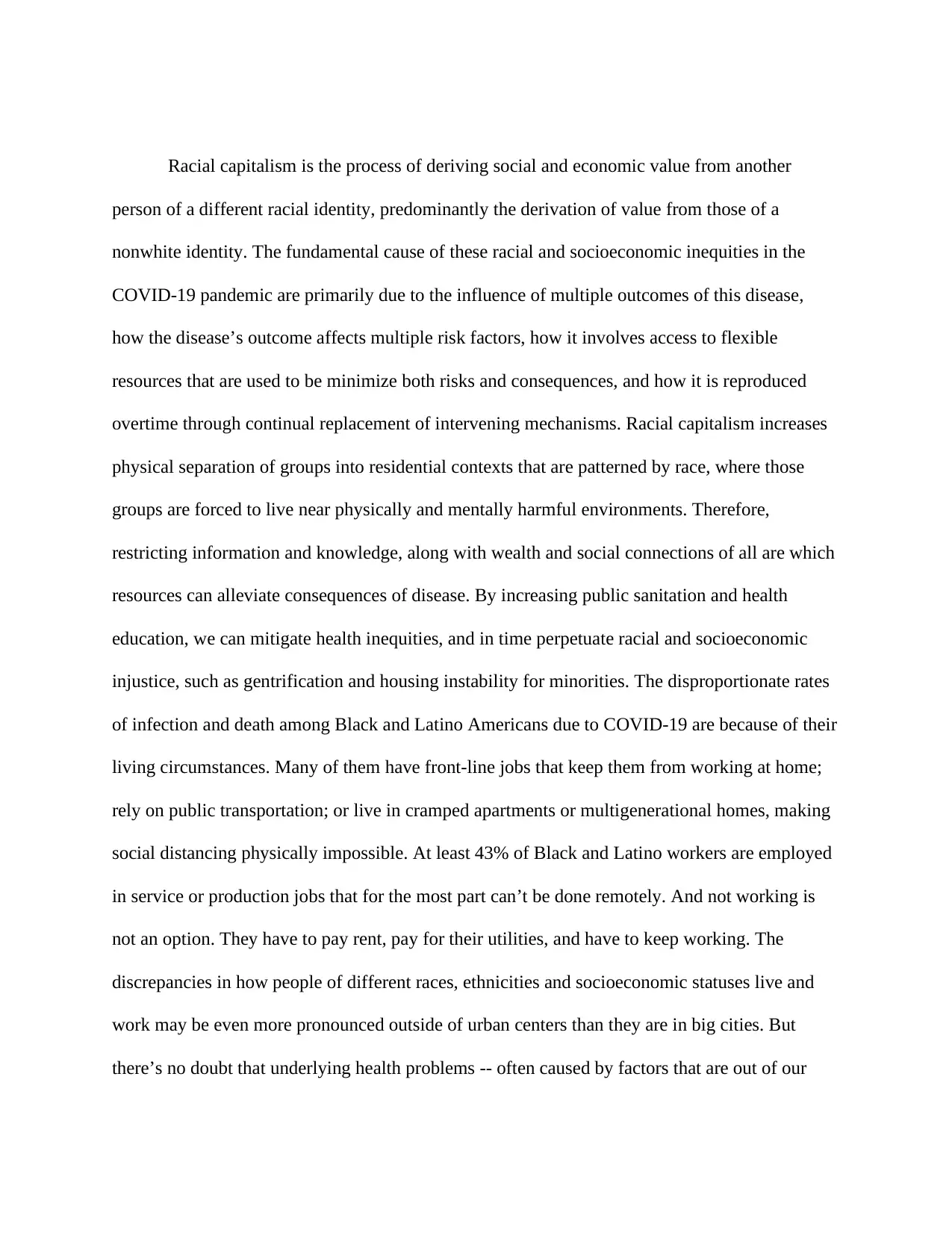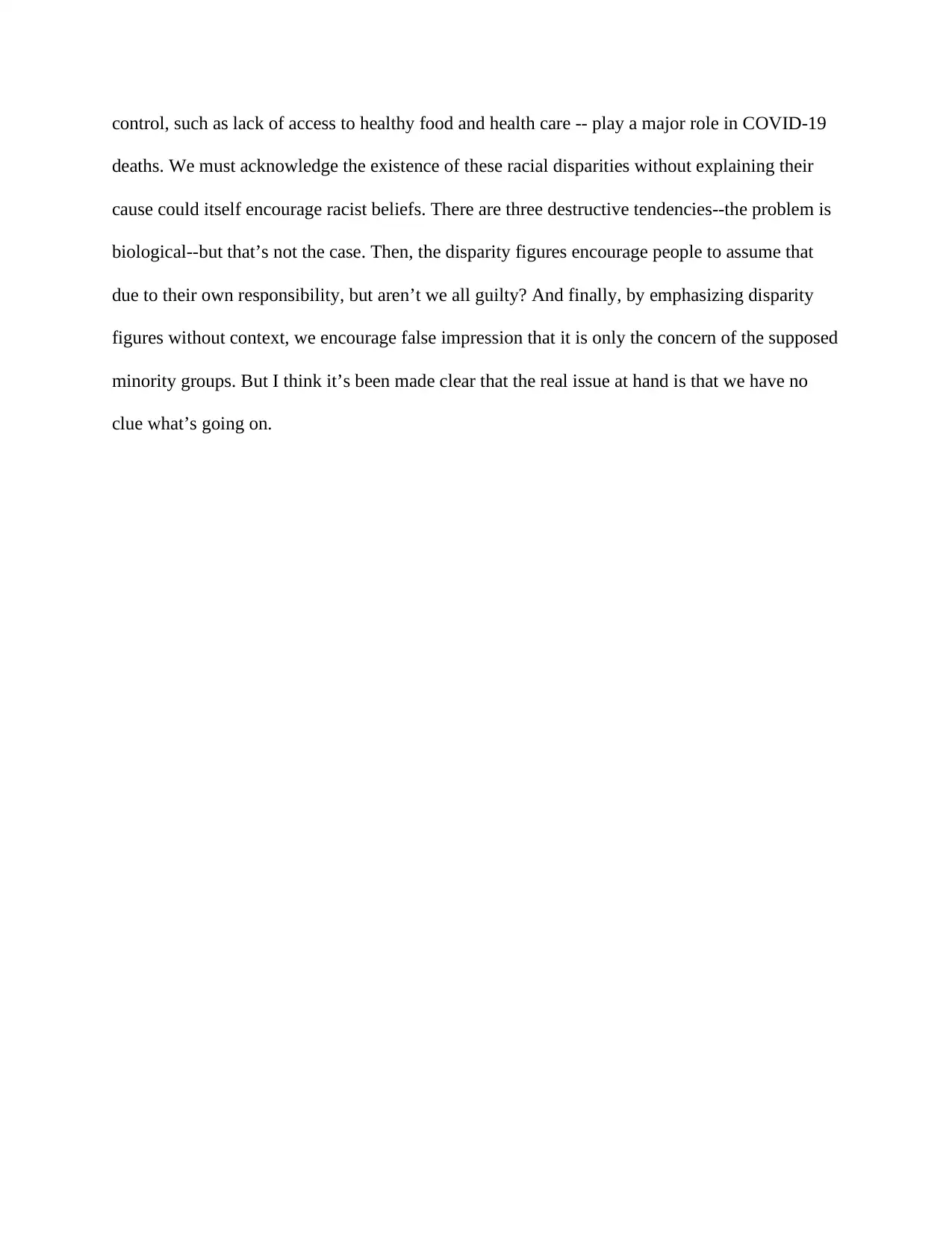Examining the Impact of Racial Capitalism on COVID-19 Inequities
VerifiedAdded on 2023/02/03
|2
|484
|29
Essay
AI Summary
This essay examines the role of racial capitalism in perpetuating socioeconomic inequities during the COVID-19 pandemic, highlighting how the system derives value from non-white individuals, leading to disparities in health outcomes. It argues that racial capitalism increases physical separation and restricts access to resources, exacerbating the impact of the disease on marginalized communities. The essay points out that Black and Latino Americans face disproportionate rates of infection and death due to their living and working conditions, including front-line jobs, reliance on public transportation, and crowded housing. It cautions against attributing these disparities to biological factors or individual responsibility, emphasizing the need to address systemic issues like lack of access to healthy food and healthcare. Ultimately, the essay calls for acknowledging and addressing these racial disparities to mitigate health inequities and promote social justice.
1 out of 2






![[object Object]](/_next/static/media/star-bottom.7253800d.svg)